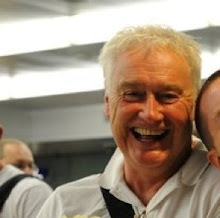Would it be churlish, even for me, to suggest that Andrew Lloyd Webber’s
£32m sale of a
Nazi-tainted Picasso to fund (just ten, tuition-fee only)
bursaries for musical theatre students is merely another in a long line of tax-deductible publicity stunts for the noble Lord?

In a good weekend for musical theatre, I’ve witnessed two remarkable events. The first was an actual pay-day for performers in a profit-share production. Last Saturday, thanks to the generosity and good management of their producer,
The Audience Club doyenne Angela Hyde-Courtney, the cast of
Thom Southerland’s bouncy Jerry Herman compilation show at the Landor each received a white envelope of proper folding stuff at the after-show party.
This in itself is remarkable: few fringe productions generate more than beer money for their participants, and it often makes me feel uncomfortable that to keep ticket prices affordable so many actors and singers have to double a day job in Debenhams. When you don’t get paid, it could be argued you’re actually an amateur, except that the standard and the pool of talent washing around London for such work is so outstanding. In a cast most of whom were West-End-ready there were several shiners but none brighter than
Daniella Gibb whose rendition of ‘Look What Happened To Mabel’ was impeccably focused and sung.
The second remarkable event is the SSSPOTTYs – or the Stephen Sondheim Society Student Performer of the Year awards in which not only performances but also new composition is recognized with a secondary prize given by
Betty Blue Eyes composers Stiles and Drewe.
Sunday afternoon’s finals at the Queen’s Theatre simply blew me away. Whilst the boys somewhat outshone the girls, the standard is again beyond excellent, and interestingly many of the finalists came from classical colleges like the Royal Academy of Music and RADA rather than the usual hothouses of Mountview, Central or ArtsEd Schools which is fast becoming the ‘Fame’ academy of the UK.
Winner
Taron Egerton, making so much more of ‘Giants in the Sky’ than the piece usually gets in productions, and stand-out finalist
Craig Rhys Barlow whose meticulous diction and body language combined in an electrifying ‘Franklin Shepherd Inc’, both proved that Wales still produces naturally talented singers.
The winning composition – a delightful humorous and tender piece in which a superhero tells a geeky kid that muscle doesn’t outrank brains, ‘It’s Not All Kaboom, Kapow’ by Eric Angus and Paul James from their adaptation of the Ayckbourn piece
The Boy Who Fell into a Book was delivered by another highly promising baritone,
Howard Jenkins.
I was so elated after the SSSPOTTYs I almost didn’t go on to the evening concert at Cadogan Hall where a range of more established performers were supporting
London Gay Men's Chorus and the male rape crisis charity
SurvivorsUK. Part of my reluctance was fuelled by the fact that the headliner was Lesley Garrett, but given it was for a deserving cause, I thought I’d give her the benefit of the doubt.
Shouldn’t have bothered, she was terrible.
I'm not sure which made me more annoyed - her ridiculous, shrill, too-high-in-her-range singing or the clumsy, campy way she claimed allegiance to the charity. Among the other stars, Hannah Waddingham in particular showed her up with her effortless phrasing and natural projection. Everyone else seemed to make a genuine and heartfelt connection to the Survivors cause, but Garrett came over as desperate-to-be-popular, and a fake.
Her song choices were bizarre –
I Dreamed a Dream,
Somewhere and
The Impossible Dream - since Fantine dies aged 27, Maria is a teenager, and Don Quixote a virile young knight-errant, everything she sang was irrelevant and contributed to her delusional belief in her own ability, youth or popularity, none of which were evident from the Stalls.

Garrett compares piercings with the LGMC's David Clarke. Hers is in her voice. (photo: Mark Killien)It’s such a pity. She and I are contemporaries and both grew up in Yorkshire, but whereas I couldn't wait to get away, Garrett clings to the Doncaster coal-face as though ashamed to relinquish a background she has long transcended. She’s obviously a very kindly woman if she’ll give of her time for a worthy event, and it must be quite a come-down after her festival career to sing in a half-empty Cadogan Hall – but it’s vastly irritating to see someone who COULD be so much better, and more real, if she abandoned any pretence of being either a great operatic singer (Verdi is not enhanced by a Yorkshire accent), or a soprano.
As a mezzo, she might have had the international career denied her by languishing in the ENO too long, and if she had some acting lessons she mightn’t have disgraced herself quite so badly in
Carousel, when despite having only two numbers she almost never worked a full week.
Still, for every fading or deluded diva there’s a thousand up and coming musical theatre performers to cheer on and applaud. It makes even me optimistic.































